My Makhzen and Me est un film de genre Documentaire
My Makhzen and Me (2012)

Si vous aimez ce film, faites-le savoir !
- Infos
- Casting
- Infos techniques
- Photos
- Vidéos
- Passages TV
- Citations
- Personnages
- Musique
- Récompenses
My Makhzen and Me is a 2012 documentary Moroccan film directed, produced and shot by Nadir Bouhmouch. The documentary was the first of its kind in Morocco, an unprecedented and direct critique of the Moroccan Makhzen, it portrayed the struggle of the pro-democracy February 20 youth Movement and made extensive use of footage shot by activists on telephones or home video cameras showing police violence at the demonstrations held throughout 2011 and early 2012.
Synopsis
In the summer of 2011, Nadir Bouhmouch, a Moroccan student studying abroad returns to his home country and finds it in a state of turmoil. The uprisings in Tunisia and Egypt had spread to Morocco. Organized by a group of students called the February 20th movement, people were flooding the streets and demanding change. But the Makhzen (the ruling elite) refuses to abandon its grasp. Divided into several sections. the film investigates what initially gave birth to the revolt and the various obstacles it encounters on its struggle for democracy. The film makes use of several interviews but largely focuses on two young February 20 activists in Morocco's capital, Rabat.Commentaires
Postez un commentaire :
Suggestions de films similaires à My Makhzen and Me
Il y a 8965 ayant les mêmes genres cinématographiques, 8199 films qui ont les mêmes thèmes (dont 515 films qui ont les mêmes 3 thèmes que My Makhzen and Me), pour avoir au final 70 suggestions de films similaires.Si vous avez aimé My Makhzen and Me, vous aimerez sûrement les films similaires suivants :
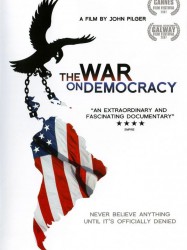
The War on Democracy (2007)
, 1h36Réalisé par John Pilger
Genres Guerre, Documentaire, Historique
Thèmes La mer, Transport, Documentaire sur le droit, Documentaire historique, Documentaire sur la politique, Politique, Les dictatures latino-américaines
Acteurs John Pilger, Ronald Reagan
Note80%






Anarchism in America (1983)
, 1h15Genres Documentaire
Thèmes Documentaire historique, Documentaire sur la politique, Documentaire sur l'anarchisme, Politique
Acteurs Jello Biafra
Note69%





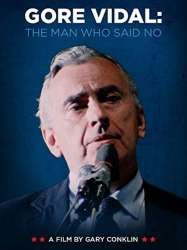
Réalisé par Gary Conklin
Origine Etats-Unis
Genres Documentaire
Thèmes Film sur un écrivain, Documentaire historique, Documentaire sur une personnalité, Documentaire sur la politique, Politique
Acteurs Gore Vidal
Note76%





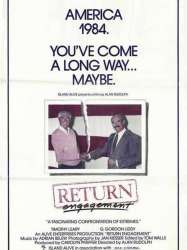
Return Engagement (1983)
, 1h30Réalisé par Alan Rudolph
Origine Etats-Unis
Genres Documentaire
Thèmes Documentaire historique, Documentaire sur la politique, Politique
Acteurs Harry Nilsson, Arnold Schwarzenegger, Marjoe Gortner, Cheech Marin
Note73%





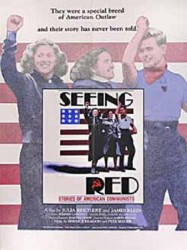 , 1h40
, 1h40Origine Etats-Unis
Genres Documentaire, Historique
Thèmes Documentaire historique, Documentaire sur la politique, Politique
Note72%





The documentary film looks at the political activities and activism of Americans who were members or supporters of the American Communist Party. It is one of the first non-fiction films to examine the role of a third political party in the United States.

When the Mountains Tremble (1983)
, 1h23Réalisé par Newton Thomas Sigel, Pamela Yates
Origine Guatemala
Genres Guerre, Documentaire, Historique
Thèmes Documentaire sur le droit, Documentaire sur la guerre, Documentaire historique, Documentaire sur une personnalité, Documentaire sur la politique, Politique
Acteurs Susan Sarandon, Shawn Elliott
Note75%





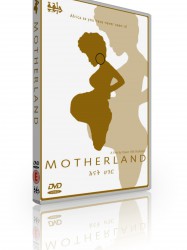
Motherland (2010)
, 1h58Réalisé par Owen 'Alik Shahadah
Origine Etats-Unis
Genres Documentaire
Thèmes Afrique post-coloniale, Esclavagisme, Le racisme, Documentaire sur la discrimination, Documentaire sur le droit, Documentaire historique, Documentaire sur une personnalité, Documentaire sur la politique, Politique
Acteurs Harry Belafonte, Abdulkadir Ahmed Said
Note82%





Motherland is an epic documentary about the African continent from Ancient Egypt to the present. It is an overview of African history and contemporary issues but with the African people at the centre of the story. It is one of the first Pan-African features to be made.
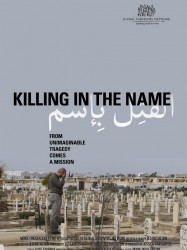
Killing in the Name (2010)
Origine Etats-Unis
Genres Documentaire
Thèmes Religion, Le terrorisme, Documentaire sur le droit, Documentaire sur la guerre, Documentaire historique, Documentaire sur la politique, Documentaire sur la religion, Documentaire sur le terrorisme, Politique, Religion musulmane
Note67%





 , 1h30
, 1h30Origine Etats-Unis
Genres Documentaire
Thèmes Le racisme, Religion, Documentaire sur la discrimination, Documentaire sur le droit, Documentaire sur la guerre, Documentaire historique, Documentaire sur une personnalité, Documentaire sur la politique, Documentaire sur la religion, Politique, Religion juive, Documentaire sur la Seconde Guerre mondiale
Note74%





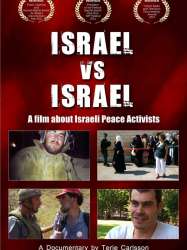
Israel vs Israel (2010)
, 58minutesGenres Documentaire
Thèmes Afrique post-coloniale, Religion, Documentaire sur le droit, Documentaire sur la guerre, Documentaire historique, Documentaire sur une personnalité, Documentaire sur la politique, Documentaire sur la religion, Politique, Religion juive
Note72%





 Connexion
Connexion